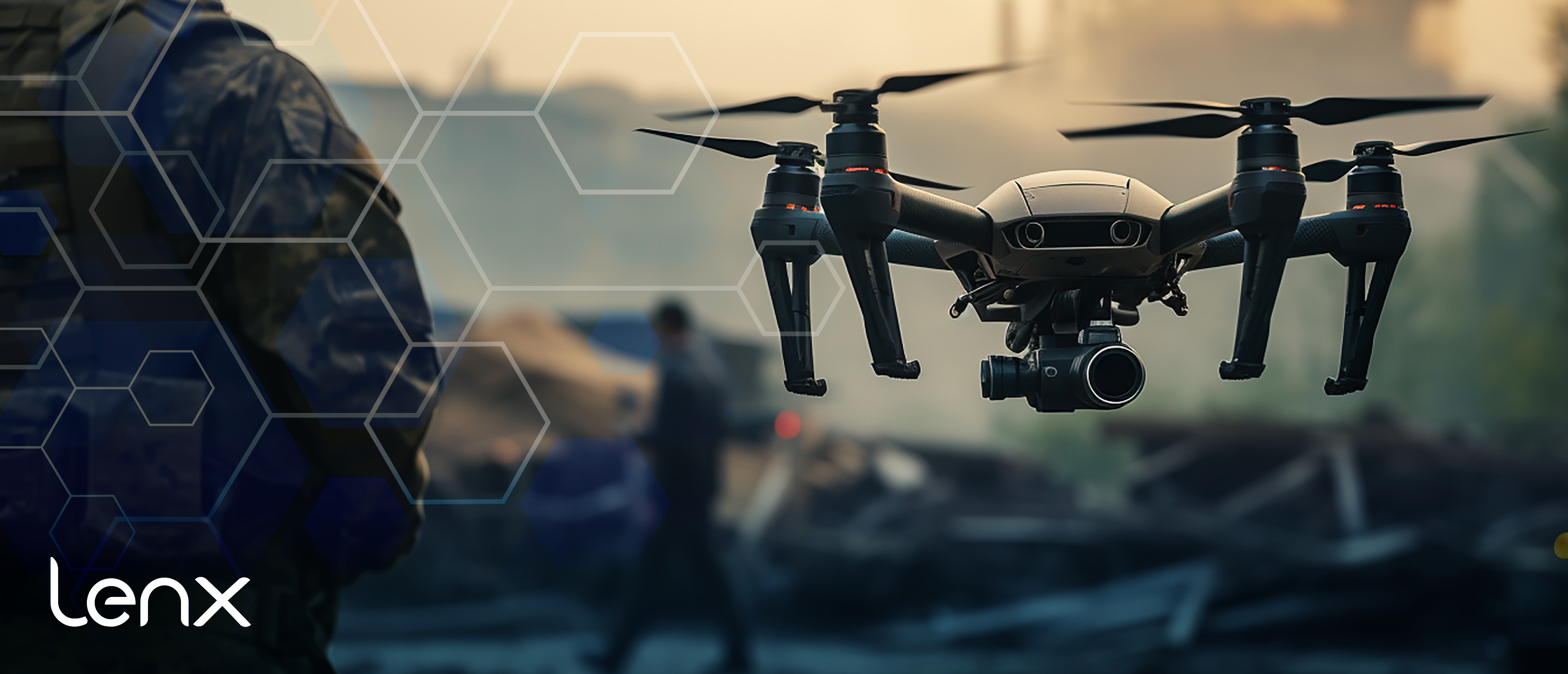
Creating A Layered Defense with AI Security and Active Shooter Detection
In recent years, the rise in active shooter incidents has sparked a global concern. Schools, in particular, have become a focal point for safety discussions.

AI security has emerged as a promising solution. It offers advanced threat detection capabilities, enhancing the safety of vulnerable spaces.
This article delves into the concept of AI security. We'll explore its role in active shooter detection and how it can be integrated into existing security systems.
We'll also discuss the concept of layered security. This strategy involves multiple levels of defense, providing a comprehensive approach to threat prevention and response.
By the end of this article, you'll gain insights into the latest AI-driven security technologies. You'll understand how they contribute to a safer environment, particularly in educational institutions.
Join us as we navigate the landscape of AI security and its potential in creating a layered defense against active shooter scenarios.
Understanding AI Security in the Context of Active Shooter Detection
AI security is a rapidly evolving field. It leverages artificial intelligence to enhance threat detection and response. In the context of active shooter scenarios, AI security can be a game-changer.
It offers real-time detection capabilities, reducing response times. AI security can also integrate with existing systems, enhancing their effectiveness.
However, it's important to note that AI security also has its limitations.
Human oversight remains crucial. Regular updates and training are necessary to ensure the effectiveness of AI security systems.
The Rise of Active Shooter Incidents and the Need for Advanced Security
Active shooter incidents have been on the rise. This alarming trend has underscored the need for advanced security measures.
Schools, in particular, have been targeted. This has led to a heightened focus on school security.
AI security can play a pivotal role in addressing this issue. It offers advanced threat detection capabilities that can enhance school safety.
What is AI Security and How Does it Work?
AI security refers to the use of artificial intelligence in threat detection and response. It involves the use of machine learning algorithms to analyze data and identify threats.
These threats can range from unauthorized access to active shooter scenarios. Once a threat is detected, the system can trigger an alarm or initiate a response.
AI security systems can also learn from past incidents. This helps improve their accuracy and reliability over time.
The Role of AI in Modern Threat Detection Systems
AI plays a crucial role in modern threat detection systems. It enhances their capabilities, making them more effective and efficient.
For instance, AI can analyze large volumes of data in real-time. This allows for immediate threat detection and response.
Moreover, AI can integrate with other systems. This enhances the overall security infrastructure, creating a more cohesive and comprehensive defense strategy.
The Concept of Layered Security and Its Importance
Layered security is a defense strategy. It involves multiple layers of protection to deter, detect, and respond to threats.
This approach is crucial in today's complex threat landscape. It ensures that even if one layer fails, others can still provide protection.
Layered security is particularly important in active shooter scenarios. It allows for rapid detection and response, potentially saving lives.
Defining Layered Defense: A Multi-Faceted Approach
Layered defense involves multiple security measures. These can range from physical barriers to advanced AI security systems.
Each layer serves a specific purpose. Together, they create a comprehensive defense strategy.
In the context of active shooter scenarios, layered defense can include measures like access control, CCTV surveillance, AI gun detection, and active shooter alarm systems.
How AI Enhances Layered Security Strategies
AI can significantly enhance layered security strategies. It can provide real-time threat detection, improving the effectiveness of the overall defense.
AI can also integrate with other security measures. This creates a more cohesive and comprehensive security system.
Moreover, AI can analyze large volumes of data. This can provide valuable insights, helping to improve security measures over time.
AI-Driven Technologies for Active Shooter Detection
AI-driven technologies are revolutionizing active shooter detection. They offer advanced capabilities that can significantly enhance security measures.
One such technology is AI gun detection. This can identify potential threats in real-time, allowing for rapid response.
Another is active shooter alarm systems. These can provide immediate alerts, helping to ensure the safety of individuals in the vicinity.
AI Gun Detection: Real-Time Threat Identification
AI gun detection uses advanced algorithms to identify firearms. It can do this in real-time, providing immediate alerts when a threat is detected.
This technology can be integrated with CCTV systems. This allows for continuous monitoring and rapid response in the event of an active shooter scenario.
AI gun detection can also minimize false alarms. It does this by accurately distinguishing between firearms and other objects.
Active Shooter Alarm Systems: Rapid Response Solutions
Active shooter alarm systems are crucial in active shooter scenarios. They can provide immediate alerts, helping to ensure a rapid response.
These systems can be integrated with AI security. This allows for real-time threat detection and immediate activation of emergency protocols.
Active shooter alarm systems can also provide valuable information to first responders. This can include the location of the shooter, the type of firearm used, and the number of shots fired.
AI Security Apps: Empowering Individuals with Information
AI security apps can empower individuals with critical information. They can provide real-time alerts and updates during an active shooter scenario.
These apps can also provide guidance on what to do in such a situation. This can include instructions on where to hide, how to barricade doors, and when it's safe to escape.
Moreover, AI security apps can provide a direct line of communication with law enforcement. This can help ensure a coordinated and effective response.
Ethical Considerations and Community Involvement
The use of AI in security raises important ethical considerations. These primarily revolve around privacy and data protection.
Community involvement is crucial in addressing these concerns. It can help ensure that AI security measures are implemented in a way that respects individual rights.
Moreover, community involvement can foster a sense of ownership and trust. This can be instrumental in the successful adoption of AI security measures.
Balancing Safety with Privacy: Ethical Implications of AI Security
AI security systems often require the collection and analysis of large amounts of data. This can raise concerns about privacy and data protection.
It's important to strike a balance between safety and privacy. This can be achieved by implementing robust data protection measures and ensuring transparency in data handling practices.
Moreover, the use of AI in security should be guided by ethical principles. These should prioritize respect for individual rights and the responsible use of technology.
The Role of Transparency and Trust in AI Security Adoption
Transparency is key in the adoption of AI security measures. It can help build trust and acceptance among the community.
Transparency involves clear communication about how AI security systems work. It also involves being open about data handling practices and the measures in place to protect privacy.
Trust, on the other hand, is built over time. It involves demonstrating the effectiveness and reliability of AI security systems. It also involves showing respect for individual rights and listening to community concerns.
Conclusion: The Future of AI Security in Active Shooter Scenarios
AI security holds great promise for enhancing safety in active shooter scenarios. With advancements in technology, we can expect more accurate threat detection and faster response times.
However, the successful implementation of AI security will require ongoing community involvement, ethical considerations, and a commitment to balancing safety with individual rights.

